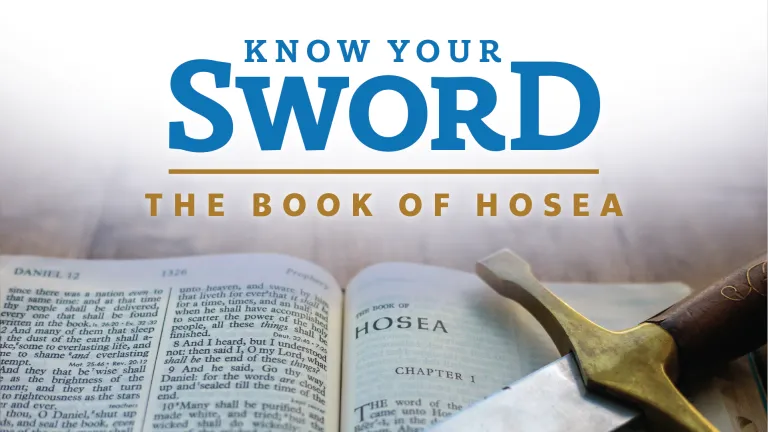Hosea Part 06

God gives clear and meaningful instructions to us on how to follow His commands and worship Him. Choosing to worship God in other ways than He commands is sin. We see patterns of human behavior evident in the circumstances then and in our political-judicial-economic system now.
In Hosea 7:1-3 we see that God has not previously forgiven and redeemed Israel because their sin was pervasive, meaning that it has been determined deep in the people’s minds. We see this starting from the top: the capital city and the king leading the way in idolatry for the rest of the people, starting from Jereboam I all the way to Hoshea.
Verse 4 seems to represent both idolatry AND adultery. The use of an oven and fire are repeatedly mentioned as metaphors for the heat of passions. Even when they are contained, they are ready to flame up at any time!
The phrase “mixed among peoples” used in verse 8 seems to refer to inter-marriage. This was perhaps by immigration and relying on military alliances with other peoples. “Ephraim is a cake unturned,” refers to flatbread (like pita) burned on one side and uncooked on the other—it is useless for either reason.
In the next set of verses in 7:11-16 it is described how Israel by turns has looked to Egypt or to Assyria for help but not to the one true God who truly could help them! Verse 16 states, “They return, but not to the Most High.” An example of this is in 2 Kings 10 when Jehu eliminated Baal worship but then turned to calf-worship rather than worshiping God the Father. Religious revivals didn't (and still do not) turn to true worship of the true God.
In Hosea 8, the chapter begins with a strong warning: "Set the trumpet to thy mouth," an alarm of war echoed in Ezekiel 33:3–6, Amos 3:6 and Zephaniah 1:16. This trumpet blast signals coming judgment, as the Assyrians will come "as an eagle," swooping in like a bird of prey. The "house of the LORD" refers to Israel itself, although later, Nebuchadnezzar would do so literally against the temple.
In verses 2–4, we see that Israel has a long track record of calling upon God only when in serious trouble, as seen in Nehemiah 9:27–28. Yet, despite these desperate cries, Israel did not truly turn and live by God’s law. While God did appoint—or at least allow—some of Israel’s kings, many came to power through assassinations, a chaotic pattern that may even foreshadow elements of modern political instability.
A continuing lesson in Hosea is clear: the sins of ancient Israel are paralleled in our nations today. Because of this, punishment should be expected. However, we can also expect mercy and God’s enduring love.
In Hosea 8:5–7, God declares, “Your calf is rejected,” which in Hebrew means, “your calf stinks!” This likely refers to the golden calves that Jeroboam set up at Dan and Bethel, symbols of idolatry. These man-made gods were not instituted by God and thus were not accepted by Him. God does not accept worship in forms He has not instituted. Such idols could not save Israel, and the nation would get exactly what it deserved for trusting in them.
Verses 9–10 highlight Israel’s failed attempt to hire Assyria as an ally, a political move that backfired and led to sorrow when Assyria later conquered them. This could serve as a warning to nations today, including the U.S., that misplaced alliances can bring downfall.
Finally, in verses 11–13, we’re told that the many altars of Israel—originally meant for worship—had become a means of sin. Any worship of God that deviates from His command is sin, as emphasized in Deuteronomy 12:29–32. This principle extends to modern practices, such as the observance of pagan holidays or worship on Sunday instead of the Sabbath. God does not accept just any sacrifice; when offered with the wrong attitude or in the wrong form, it is no better than merely eating meat (Isaiah 1:11–17; 43:22; Jeremiah 7:21–22). Worship must be both sincere and obedient to God's specific instructions.
There are contemporary parallels within our political-judicial-economic systems now. Consider how these words might apply to Washington D.C. which represents the government of the United States. They have committed fraud, they are full of pride, they do not cry out to God, they rebel against God, they make partnerships with other nations without consulting God. There are many temples and beautiful cities, yet God does not look favorably on them (Hosea 7 and 8). Pride is a dangerous mindset as it precedes judgment. As we read about what happened to Israel and Judah and why, we can see that conditions are similar today to those described then. It has been said that history doesn’t repeat itself, but it rhymes. If the preceding events sound familiar, then what comes next might be predictable as well.
© Frank Dunkle, 2025. All rights reserved.
UYA Team | uya@ucg.org
United Young Adults (UYA) primarily serves the 18–32-year age group for the United Church of God. There are three main areas of contribution to the lives of the young adults: Promoting Spiritual Growth, Developing Meaningful Relationships and Making the Most of Your Talents. The Know Your Sword series is a daily expository message introducing God’s Word from a trusted perspective.

